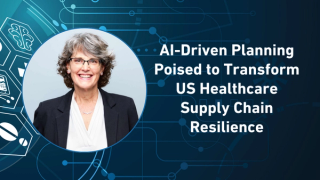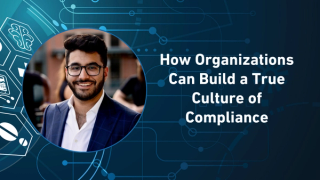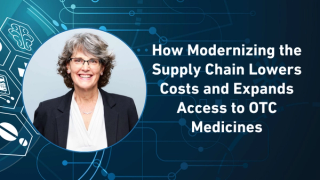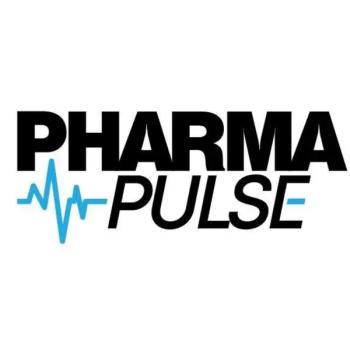
Data & Technology
Latest News

Latest Videos

Shorts


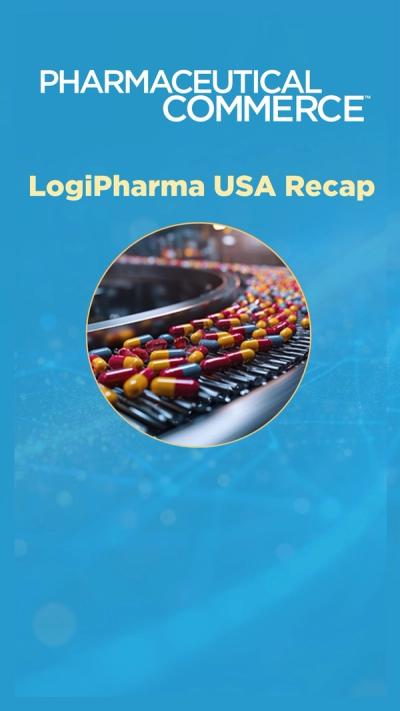




Podcasts
More News

A new partnership integrates Amazon Pharmacy into Experity’s urgent care platform, enabling in-clinic prescription ordering, faster fulfillment, and improved treatment adherence through streamlined digital workflows.

The nationally licensed pharmacy network now supports Ethereum, Solana, and XRP across all retail locations, marking a major step toward faster, more transparent payments—and laying the groundwork for a blockchain-based prescription drug payment system.

How next-generation AI-driven traceability hubs can transform pharmaceutical serialization from a compliance requirement into a business advantage, while enabling real-time supply chain visibility, faster issue resolution, and greater operational efficiency across the global drug distribution network.

Lance Hill, CEO of Within3, discusses how AI-driven decision support tools are helping pharmaceutical companies achieve launch excellence while maintaining regulatory compliance and data integrity.

At LogiPharma USA, industry leaders from Tive, McKesson, and the broader healthcare logistics community discussed the sector’s transition from passive monitoring to real-time control, the growing influence of advanced therapies, and the importance of diversity and innovation in shaping the future of pharma supply chains.

Kala Shankle, JD, HDA’s vice president of regulatory affairs, describes how at this year’s seminar, attendees emphasized pragmatic approaches to achieving full compliance while anticipating upcoming FDA rules that could reshape wholesale and 3PL licensure standards across the pharma supply chain.
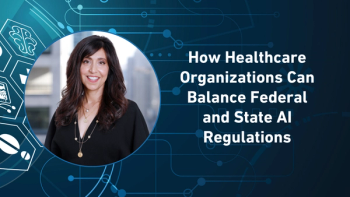
In the third part of her Pharma Commerce video interview, Linda Malek, JD, partner at Crowell & Moring, explains how healthcare organizations can harmonize both approaches by prioritizing fairness, transparency, and adaptable systems.

In a video interview with Pharma Commerce, Mark Lee, Marqvision’s founder and CEO, and Sean O’Hearen, founder and principal consultant at 1st Line Partners, warn that counterfeiters are rapidly leveraging AI to create fake websites, social profiles, and manipulated product content—outpacing traditional protections and highlighting widespread underreporting of falsified medicines.

Krenar Komoni, founder and CEO of Tive, predicts that AI-driven automation and its accelerating impact on pharmaceutical supply chains will remain a headline topic at LogiPharma USA, as the industry faces growing pressure to innovate while balancing strict regulatory requirements.
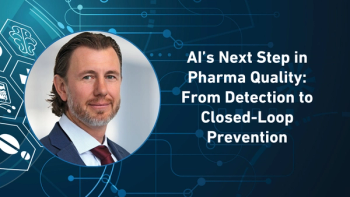
In the final part of his Pharma Commerce video interview, Shawn Opatka, VP and GM, Honeywell Life Sciences, explains that as pharma quality systems evolve, AI is shifting from reactive problem-solving to proactive, closed-loop risk prevention, enhancing operator insight, decision-making, and continuous process improvement.
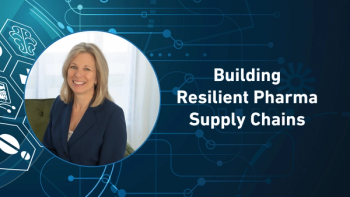
Ammie McAsey, SVP of Supply Chain Operations, McKesson, explains the critical role of real-time visibility, digital tools, and cold chain innovation in ensuring product quality, reducing disruptions, and strengthening patient care.

In the second part of his Pharma Commerce video interview, Shawn Opatka, VP and GM, Honeywell Life Sciences, notes that nearly all pharma organizations are experimenting with AI to address labor shortages, data challenges, and regulatory demands, but full-scale adoption remains on the horizon as companies balance innovation with compliance.

In a video interview with Pharma Commerce, Kirsten Newquist, Identiv’s CEO, and Mark Sawicki, PhD, Cryoport Systems’ president and CEO, explain how embedded product intelligence—paired with cautious, strategic adoption of AI—is redefining pharmaceutical cold chain reliability and supply-chain decision-making.

This first-party approach to data-driven messaging can ensure timely, compliant, and personalized engagement with healthcare providers at the point of care.

As AI adoption accelerates across life sciences, Shawn Opatka, VP and GM of Honeywell Life Sciences, and Linda Malek, JD, partner at Crowell & Moring, discuss how regulatory expectations and federal initiatives—like the White House AI Action Plan—are shaping the technology’s future role in pharma quality, traceability, and healthcare systems.

How can 360° connectivity drive pharma innovation?

Advice for pharma distributors and dispensers on what they should do now in order to solidify a secure supply chain.
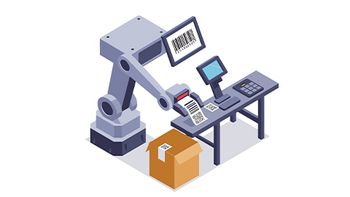
A new report underscores how 2D barcodes and automated data capture powered by GS1 standards can help logistics and life sciences companies overcome outdated systems, labeling issues, and visibility gaps.

Dave Malenfant, healthcare supply chain expert, outlines the topics that are top of mind at the show.

Experts from Moderna, Revelation Pharma, and Alexion offer ways to reduce risks, improve real-time visibility, and ensure product integrity in the growing ship-to-home market.

Christy Christian, senior industry principal with Kinaxis, and Hari Kiran Chereddi, CEO of HRV Pharma, explain why AI’s reliability depends on product stability, how human judgment still matters, and how a digital, AI-validated manufacturing backbone is accelerating regulatory reviews, strengthening supplier management, and transforming global production readiness.

This guide shows how to move beyond rear-view reporting and transform data into actionable strategies that drive payer engagement, sharpen planning, and maximize brand performance.

How is AI solving pharma's speed-to-market challenge?
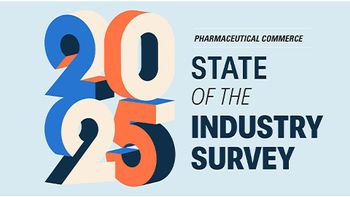
Capturing insights from executives and industry experts on the biggest challenges shaping pharma today, from drug pricing pressures and access barriers to supply chain shifts, digital adoption, and evolving patient-centered care strategies.

Ullrich Mayeski, community engagement director of health with GS1 US, emphasizes the critical need to address interoperability challenges at the dispenser level, ranging from small independent pharmacies to large hospital systems.






